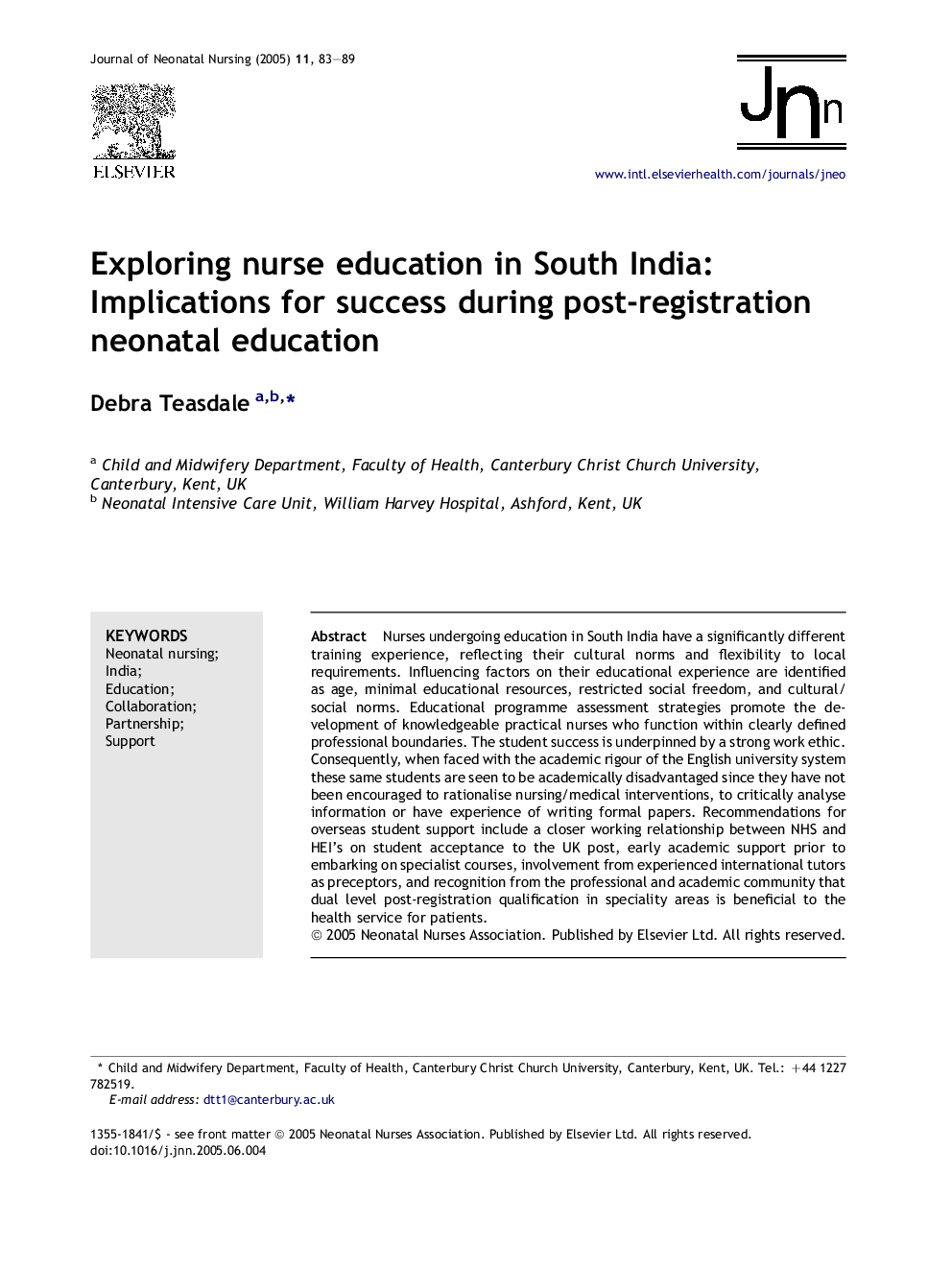| Article ID | Journal | Published Year | Pages | File Type |
|---|---|---|---|---|
| 9052923 | Journal of Neonatal Nursing | 2005 | 7 Pages |
Abstract
Nurses undergoing education in South India have a significantly different training experience, reflecting their cultural norms and flexibility to local requirements. Influencing factors on their educational experience are identified as age, minimal educational resources, restricted social freedom, and cultural/social norms. Educational programme assessment strategies promote the development of knowledgeable practical nurses who function within clearly defined professional boundaries. The student success is underpinned by a strong work ethic. Consequently, when faced with the academic rigour of the English university system these same students are seen to be academically disadvantaged since they have not been encouraged to rationalise nursing/medical interventions, to critically analyse information or have experience of writing formal papers. Recommendations for overseas student support include a closer working relationship between NHS and HEI's on student acceptance to the UK post, early academic support prior to embarking on specialist courses, involvement from experienced international tutors as preceptors, and recognition from the professional and academic community that dual level post-registration qualification in speciality areas is beneficial to the health service for patients.
Related Topics
Health Sciences
Nursing and Health Professions
Midwifery
Authors
Debra Teasdale,
